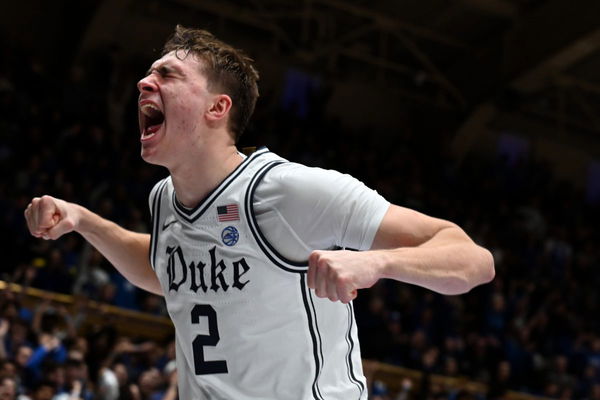A former Duke University athlete is making headlines after taking drastic measures to prevent freshman sensation Cooper Flagg from securing a historic $400 million contract. The unnamed alum, reportedly a wealthy investor and basketball enthusiast, has vowed to put his own money on the line to derail the deal, sparking controversy in the sports and business worlds.
Flagg, a projected top NBA draft pick, has been generating immense attention for his dominance on the court. His potential earnings, fueled by endorsements and professional contracts, could make him one of the highest-paid college athletes in history. However, the Duke alum argues that such a massive payday at this stage could be detrimental to Flagg’s long-term career and the integrity of college basketball.
Sources close to the situation claim the alum is working behind the scenes to influence key stakeholders, including Duke officials, NBA executives, and potential sponsors. His goal is to either delay Flagg’s leap to the professional ranks or restructure financial opportunities to ensure he remains in college longer. This unprecedented move has sparked debate over whether such interference is ethical or even legally enforceable.
Many in the basketball community view the alum’s efforts as overreach, with some calling it an attempt to control an athlete’s financial future. Others, however, argue that the rapid commercialization of college sports is leading young players to make hasty career decisions, potentially jeopardizing their development. Flagg’s camp has yet to comment publicly on the situation, but insiders suggest they are closely monitoring the alum’s actions.
Duke’s athletic department has also remained silent on the matter, though some university officials are reportedly distancing themselves from the alum’s stance. The NCAA, which has struggled to regulate name, image, and likeness (NIL) deals, may be forced to weigh in if this case sets a precedent for outside interference in athlete earnings.
Legal experts suggest that while the alum has the right to invest his money however he chooses, directly obstructing an athlete’s financial prospects could lead to lawsuits. If Flagg’s representatives believe his earning potential is being intentionally hindered, they could pursue legal action to protect his opportunities.
As the situation unfolds, it remains unclear how much influence the alum will have over Flagg’s career trajectory. If his efforts succeed, it could signal a shift in how elite college athletes navigate their financial futures. If they fail, it may serve as a cautionary tale against meddling in the evolving world of NIL deals and professional contracts.
For now, the basketball world waits to see whether Cooper Flagg will move forward with his record-breaking deal—or if an unexpected adversary will alter the course of his career.
